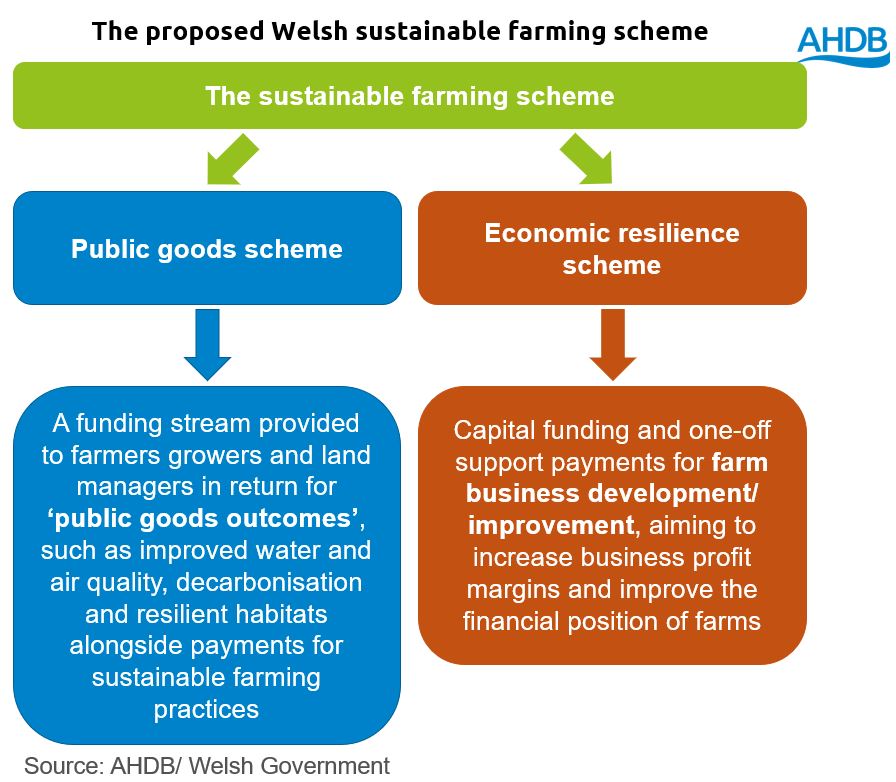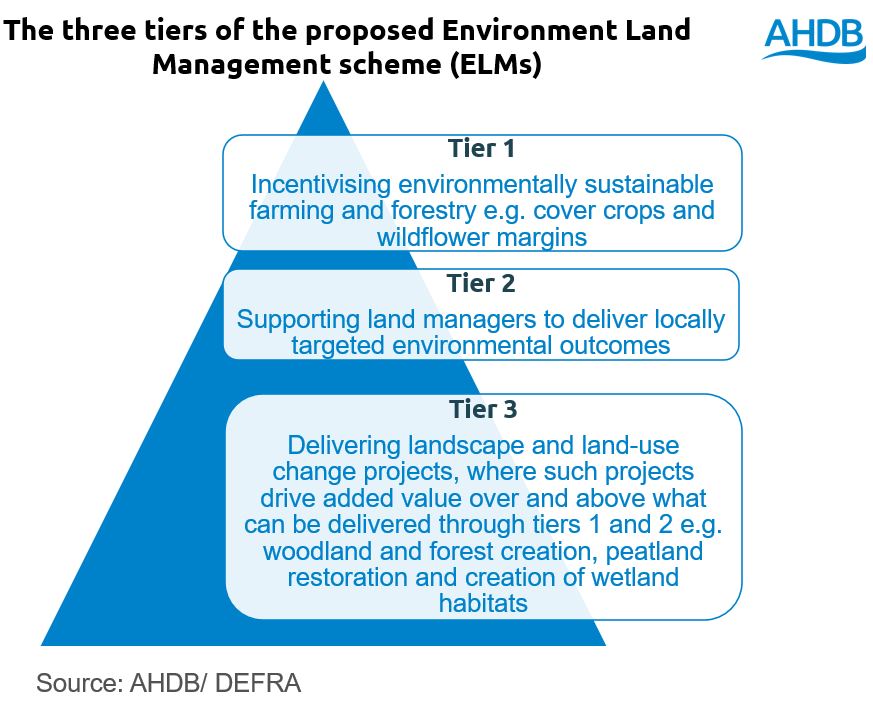The devolved nations and agricultural policy: Wales
Thursday, 19 November 2020
Agriculture Policy is devolved in the UK which means that different countries are able to take different approaches. In this article we look at plans for a ‘Sustainable Farming Scheme’ in Wales.
Current differences between the devolved nations agricultural policy
As previously mentioned, agricultural policy in the UK is a devolved responsibility. Therefore, each nation has its own plans for domestic policy upon the removal of direct payments through the CAP.
The Welsh government published ‘Brexit and our land’ in 2018, the consultation proposed a new land management programme, set to replace BPS in a transition period from 2022. The sustainable farming scheme is split into two flexible schemes – public goods and economic resilience.
The public goods scheme aims to boost agricultural productivity and sustainability through sustainable farming. The scheme looks to reward Welsh farmers and growers who agree to deliver sustainable land management outcomes, such as improved water quality, biodiversity, and higher animal health.
In contrast, the economic resilience scheme aims to increase farm business development or improvement through capital funding and one-off payments. This will provide business support to farmers looking to develop skills through training, as well as providing funding to support innovation and diversification.
Welsh farmers have previously received £300 million support through BPS annually, making up 80% of Welsh farm income on average. In 2019, the current government confirmed that upon EU exit, £243 million will be allocated to support Welsh farmers annually.
In England, the Agriculture Act, which passed into UK law on the 11 November 2020, enshrines ‘public money for public goods’, meaning agricultural practices which provide a ‘public good’ such as improved air and water quality and higher animal welfare standards would be supported with ‘public money’. Therefore, English farmers and growers will receive subsidy through schemes such as the Environmental Land Management scheme (ELMs) to enhance the environment, protect the countryside and conserve livestock. The scheme includes a three-tier system, tailored to the needs of different landscapes and land types.
The Scottish government published ‘Stability and simplicity: proposals for rural funding’, which effectively states that current support schemes will remain the same, providing farmers and growers the same level of funding that would have been received under pillar 1 of CAP.
In Northern Ireland, the current rate of direct payments made through the EU’s CAP will be matched until ministers are able to make a decision regarding rural policy.
The devolved nations and proposed Internal Market Bill
Throughout the UK’s transition period, prior to leaving the EU, the UK government have drafted guidelines for a new Internal Market Bill, which is currently under amends in the House of Lords. The Bill aims to create a joint market whereby England, Scotland, Wales, and Northern Ireland trade as one. With the removal of EU rules and regulations, the UK’s devolved nations will have the power to directly implement new or differing rules and regulations locally.
Agriculture is a devolved responsibility, which means there will be differences in agricultural policy between the nations within the UK. In addition, food labelling requirements may differ, as well as methods of production, energy efficiency requirements, and many other aspects of agricultural production. Combined with the Internal Market Bill, this means that a lamb produced in the welsh mountains, under Welsh domestic agricultural policy, may be sold in England, even though it has been produced under a different system of support, which doesn’t meet the English domestic rules for labelling etc. (and vice versa). The Welsh product cannot be put at any disadvantage when sold in England (non-discrimination principle), and it will be viewed as an equivalent product (mutual recognition principle for goods) even though it may have been produced to different standards. Importantly, this non-discrimination and mutual equivalence also applies to any goods imported into one of the devolved nations. Therefore, if goods are legally imported into any part of the UK, they can be moved within the UK even if they fail to meet national standards.
The proposed Internal Market Bill has sparked concerns from the devolved nations. For instance, if the UK was to agree a trade deal with a third party, the proposed framework suggests that Wales, Scotland, and Northern Ireland would not be able to prevent the imported product from being sold in their locality.
Despite national differences in agricultural policy, the importance of the UK internal market is well recognised. For instance, in 2018 both Wales and Scotland exported 60% of their total exports, not just agricultural products, across regional borders to the rest of the UK.
Changes in agricultural policy are outside of individual levy payer influence, however there is plenty that farmers can focus on, within their own business, to help prepare them for the changes ahead. For information on the Characteristics of Top Performers, along with practical tips and case studies. Visit our website to find out more about the UK's exit from the EU.



